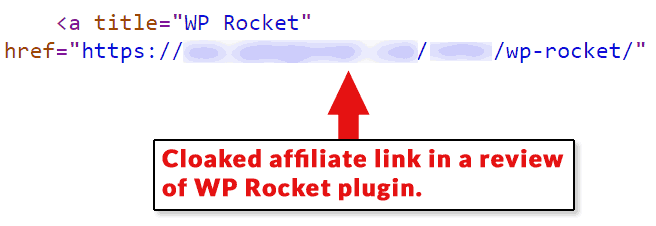The United States Federal Trade Commission (FTC) announced a $350,000 settlement with an online review company. The announcement warns others to not make similar mistakes.
There are many affiliate sites that publish product reviews and in some cases it appears that they have never actually used or tested the reviewed products. One tip-off of a fake review is the lack of original photos.
In some niches it seems like every review site Google ranks is an affiliate site posting fake product reviews.
These are the mistakes that an affiliate site or a review site needs to be aware of in order to avoid getting on the bad side of the FTC.
The FTC settled charges against a company for allegedly deceiving consumers with fake reviews.
The company, LendEDU, was also accused of not disclosing financial ties with the reviewed companies.
This is what the FTC objected to:
“The complaint charges that LendEDU and three corporate officers falsely represented that ratings and rankings weren’t influenced by compensation, failed to disclose adequately that they were paid for ratings and rankings, and falsely claimed that fake testimonials were the opinions of impartial consumers.”
Fake Reviews
LendEDU ranked loans for customers. The FTC lawsuit claims that they failed to disclose that they negotiated payments for top rankings.
The lawsuit alleges that the product rankings were objective but in reality the rankings were paid for.
One of the lessons here is that if your site claims to be objectively reviewing products then payments should not be an influence in the rankings.
There are a few WordPress plugin review sites who not only don’t explicitly reveal affiliate relationships but they tend to consistently recommend the paid products over the free versions.
The paid WordPress plugins are shared via an affiliate link.

- The paid WordPress plugins are often described as easy to use.
- The free WordPress plugins are consistently described as difficult to use and not for newbies.
I won’t name any sites. However in my opinion it seems that some WordPress product affiliate sites don’t clearly label their reviews as benefiting them financially.
What’s worse is that on some of these sites there is no clear announcement of an affiliate relationship other than a link in the footer.
According to the FTC, a link to a disclosure from the footer may not be enough:
“In some instances – like when the affiliate link is embedded in your product review – a single disclosure may be adequate. When the review has a clear and conspicuous disclosure of your relationship and the reader can see both the review containing that disclosure and the link at the same time, readers have the information they need.”
The above statement says the link and the disclosure must be clearly seen at the same time.
Adding a link to a “Disclosure” page from the footer does not appear to conform with FTC guidelines.
The FTC says this about disclosures:
“As for where to place a disclosure, the guiding principle is that it has to be clear and conspicuous. The closer it is to your recommendation, the better.
Putting disclosures in obscure places – for example, buried on an ABOUT US or GENERAL INFO page, behind a poorly labeled hyperlink or in a “terms of service” agreement – isn’t good enough.
Neither is placing it below your review or below the link to the online retailer so readers would have to keep scrolling after they finish reading. Consumers should be able to notice the disclosure easily. They shouldn’t have to hunt for it.”
The FTC then suggests typical wording:
“You could say something like, “I get commissions for purchases made through links in this post.” “
If You Say You’re Objective… Be Objective
The FTC alleged that LendEDU was deceptive about financial disclosures in the rankings.
Many affiliate sites state that they are not influenced by payments. The FTC says that if you make those kinds of statements then you must be truthful about it.
According to the FTC:
“…if you claim that compensation doesn’t factor into your content, that has to be a truthful statement.
Also, if you receive compensation from companies you rate or rank, would that financial connection be material to consumers in deciding whether to do business with those companies? If so, clearly disclose the connection.”
FTC Warns to Avoid Deceptive Reviews
The FTC settlement announcement warned online review sites to avoid the following deceptive practices.
Three ways testimonials are deceptive:
- If reviews don’t reflect actual reviewer experiences.
- If there’s a relationship between the reviewer and the advertiser (like employee, friend or family).
- If the reviews are completely made up
Actual Reviewer Experiences
The FTC says that a review must reflect actual reviewer experience. Something I find endemic in certain outdoor product niches is the lack of actual reviewer experience.
The lack of hands on experience is often reflected in the fact that the affiliate review site is using manufacturer product images.
That may be the kind of product endorsement might not be appropriate according to the FTC definition of deceptive reviews:
“…if the reviews don’t reflect the actual experience of the reviewers…”
Manufactured Reviews
The FTC recommends avoiding making up third party reviews. If you’re going to feature a review, make sure that it is a real review by someone who is not related to your company in any way.

Completely False Reviews
Made up reviews is the third activity that the FTC requires businesses to be aware of.
“… if the advertiser fabricates reviews from whole cloth.”
There are more guidelines that cover social media influencers and video product reviews.
The FTC guidelines for Social Media Influencers offers an expanded set of recommendations, including that financial compensation is not limited to money.
Takeaways for Affiliates and Review Sites
It’s important to write actual hands-on reviews and to properly disclose any financial consideration being paid to the reviewers from manufacturers. The FTC is watching. Failure to comply with requirements can be costly, a lesson that LendEDU learned the hard way.





